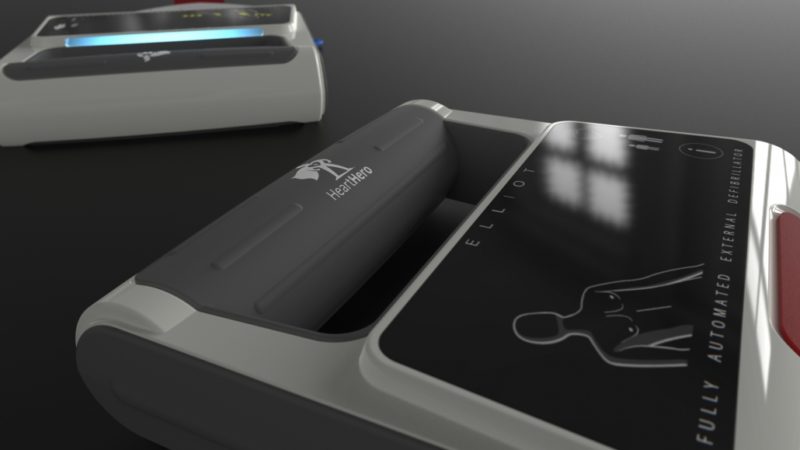
The American College of Cardiology (ACC) and automated external defibrillator (AED) technology start-up HeartHero have formed an alliance aimed at making a “significant impact” on survival rates after sudden cardiac arrest (SCA).
The partnership will further ACC’s mission to transform cardiovascular care and improve heart health through HeartHero’s innovative portable AED technology, ACC said in a press release announcing the partnership. While ACC is involved in other innovation relationships, this is the College’s first and only vested relationship with a device company, it added.
Out-of-hospital SCA affects almost 360,000 people in the US each year, killing more people than breast, lung, colon, and prostate cancers combined. Early defibrillation has the number one greatest impact to SCA survivability. Currently, the national survival rate of SCA is 10%. Research has shown that if an AED is placed within three minutes, the survivability can increase to greater than 74%. For every minute that passes without treatment, a person’s chance of surviving drops by 7% to 10%.
“AEDs save lives, but despite their increasing presence in buildings and public spaces, there is no way to guarantee quick enough access to one in cases of sudden cardiac arrest,” said John Rumsfeld, chief science and quality officer and chief innovation officer. “The ACC recognises the life-saving potential for innovative AEDs and is eager to work with HeartHero in making them widely known in the cardiovascular community and widely available to the public.”
HeartHero won the Innovation Challenge at ACC’s Annual Scientific Session in New Orleans last year for its miniaturised, portable and user-friendly AED offering a cutting-edge approach to saving lives. With the smaller and lighter AED, people at increased risk of sudden cardiac arrest can store the potentially life-saving device at home or carry it with them, ensuring instant access to an AED, the press release added. Over 70% of all cardiac arrest will happen in a home environment.
“The ACC is committed to advancing technology and promoting innovation in the cardiovascular field,” said Richard Kovacs, ACC president. “Through this new AED technology, HeartHero and ACC are providing a lifeline to people in areas without readily available AEDs, helping to reduce disparities in care from lack of AEDs and setting the stage for dramatically improved outcomes after SCA.”
The HeartHero AED guides the user through the resuscitation process with auditory and visual guides, along with CPR prompts. With integrated technology, recordable and retrievable data from the AED can also be provided to the physician at the time of the incident, thus enhancing patient treatment.
“While CPR has been the tool that buys us time in cardiac arrest, it is clear that electricity is the medicine that saves your life. Increasing awareness around the importance of AEDs and placement into the homes is the driving passion behind HeartHero’s mission. Our exclusive relationship with the American College of Cardiology is monumental in our goal of saving more lives,” said Gary Montague, CEO and founder of HeartHero. “With current technology and data, we are able to advance the AED industry with the ambition of making the greatest impact to cardiac arrest survivability seen in our time. Our relationship with the ACC will help pave the way for this outcome through research, studying and identifying those at risk and ultimately getting AEDs placed where they need to be.”
The HeartHero AED will be featured at the American College of Cardiology’s Annual Scientific Session Together with World Congress of Cardiology in Chicago, March 28–30, 2020. The device is not approved by the US Food and Drug Administration and not yet available for sale.












